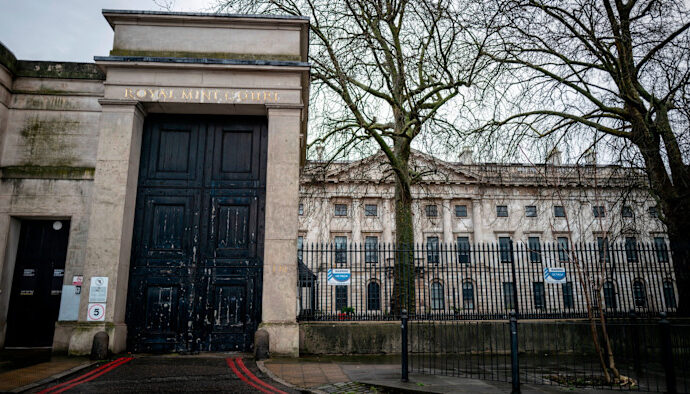Receive free North Korea updates
We’ll send you a myFT Daily Digest email rounding up the latest North Korea news every morning.
The American soldier who dashed into North Korea across its heavily militarised border with South Korea in July has been returned to the custody of his home country, US officials said on Wednesday.
Army private Travis King was transferred out of North Korea across the border with China, where the US received him. He was being moved to an American military installation and would later head back to the United States, a senior US official said.
Earlier on Wednesday North Korea’s official news agency KCNA had announced that King was to be expelled from the communist state.
The return marked an apparent end to a bizarre incident that had added a potential complication to already tense relations between Pyongyang and the US and its ally South Korea.
The senior US official said that diplomats who had interacted with King had reported he appeared to be “in good health and good spirits” and was looking forward to being reunited with his family.
“Private King was very happy to be on his way home,” the official said. “That has been quite clear as we have resumed our contact with him.”
King dashed across the border on July 18 during a guided tour of a “joint security area” between the two Koreas. The flight of the 23-year-old serviceman from Wisconsin had sparked intense international speculation as to the motives.
KCNA said on Wednesday that Pyongyang had ended an investigation into the border crossing incident and claimed that King had harboured negative feelings over alleged inhumane treatment and racial discrimination in the US army.
KCNA added that King was “disillusioned about the unequal US society”. It gave no details of the events surrounding his expulsion.
US officials said King would be evaluated on his return to America and would be assisted with re-entry to society. Asked whether he would continue to face disciplinary action in the US, one senior administration official said the military would first focus on his health.
“We’ll work through all of those administrative status questions following the completion of his re-integration,” a second senior US official said.
The soldier was one of about 28,000 US troops stationed in South Korea, and had been due to fly to Dallas for military disciplinary proceedings the day before his crossing. He had previously been held in South Korean custody for assault and criminal damage.
After weeks of silence on the incident, Pyongyang said last month that King was being held in detention. He was the first US citizen confirmed to be detained in North Korea in nearly five years. Pyongyang also said King had been seeking asylum in North Korea or a third country.
US officials have been concerned about King’s wellbeing, given North Korea’s harsh treatment of some American detainees in the past. US student Otto Warmbier was arrested in Pyongyang in 2016 and accused of trying to steal a propaganda poster. He was held for 17 months before being released and returned to the US in a coma. He died a week later.
North Korea had provided no information about King’s health nor how he has been treated.
The decision to release King comes as South Korea’s conservative government plans to step up criticism of Pyongyang’s human rights record. The UN Security Council in August held its first discussion since 2017 on human rights in the isolated state.
It was not clear why North Korea had decided to expel King.
The US has no formal diplomatic relations with North Korea and Sweden, which represents Washington’s interests there, was the primary interlocutor with Pyongyang, US officials said. The US learned via Sweden earlier this month that North Korea wanted to release King, kicking off intense diplomacy. China did not mediate but helped facilitate his transfer, they said.
North Korea is now embarking on a belated reopening from some of the most stringent Covid-19 restrictions in the world, ending a years-long period of self-imposed isolation.


